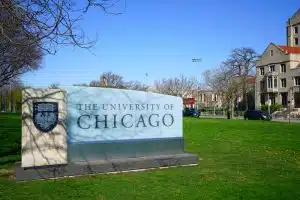Georgia Tech vs Williams: A Comprehensive Analysis
When it comes to selecting a university to pursue higher education, it can be challenging with so many institutions to choose from. Georgia Tech and Williams College are two popular universities with unique characteristics and academic programs. In this article, we will conduct a comprehensive analysis of Georgia Tech vs Williams to help you make an informed decision when selecting the right university for you.
Introduction: Why Compare Georgia Tech and Williams?
Choosing the right college can significantly impact your future, so it is important to make a wise decision when selecting a school. Both Georgia Tech and Williams have a reputation for academic excellence, and they attract students from all over the world.
By conducting an in-depth analysis of Georgia Tech vs Williams, we aim to help you make a decision that will benefit you in the long term.
Georgia Institute of Technology, commonly known as Georgia Tech, is a public research university located in Atlanta, Georgia. It was founded in 1885 and has since become one of the top engineering schools in the United States.
The university offers a wide range of undergraduate and graduate programs, including business, computing, design, engineering, liberal arts, and sciences.
Georgia Tech is also known for its strong emphasis on research and innovation, with many of its faculty members being recognized for their contributions to their respective fields.
On the other hand, Williams College is a private liberal arts college located in Williamstown, Massachusetts. It was founded in 1793 and has consistently been ranked as one of the top liberal arts colleges in the country. The college offers a broad range of majors, including art, biology, economics, mathematics, and psychology.
Williams College is also known for its small class sizes, personalized attention from faculty members, and strong sense of community among its students.
The History and Background of Georgia Tech
Georgia Tech was founded in 1885 as part of a movement to establish a school focused on technical education. The university has a rich history of innovation and research, including a key role in the development of the internet and the creation of the first undergraduate degree in computer engineering.
Today, Georgia Tech is a leading research university with strengths in engineering, science, and technology. The school is known for its commitment to experiential learning and an entrepreneurial spirit, which fosters innovation and risk-taking among its students.
In addition to its academic achievements, Georgia Tech has a strong athletic program. The Yellow Jackets compete in the NCAA Division I and are members of the Atlantic Coast Conference. The school has a storied football program, with a national championship in 1990 and numerous conference championships.
Georgia Tech also has successful basketball, baseball, and swimming and diving teams. The athletic program is an important part of the university’s culture and provides a sense of community and pride for students, alumni, and fans.
The History and Background of Williams
Williams College is a private liberal arts college founded in 1793. It is located in rural Massachusetts and has a long history of academic excellence. Williams is known for its small class sizes, close student-faculty relationships, and rigorous academic curriculum.
The college is committed to providing a well-rounded education, and its students are encouraged to explore a variety of subjects. Williams is among the top-ranked liberal arts colleges in the United States.
Williams College has a strong commitment to diversity and inclusion. The college actively recruits students from underrepresented backgrounds and has implemented various initiatives to support and empower these students.
Williams also offers a range of resources and support services for students with disabilities, including academic accommodations and assistive technology.
In addition, the college has several student-led organizations and clubs that promote diversity and inclusivity on campus.
Academic Programs at Georgia Tech
Georgia Tech offers a range of undergraduate and graduate programs across six colleges, including engineering, computing, sciences, business, liberal arts, and design.
The university is best known for its engineering programs, which are consistently ranked among the top in the nation. Students can also pursue degrees in architecture, business, and public policy.
Georgia Tech is committed to providing students with a hands-on, experiential learning environment emphasizing problem-solving and innovation.
Additionally, Georgia Tech offers a variety of interdisciplinary programs that allow students to combine their interests and pursue unique career paths.
These programs include the BS/MS program, which allows students to earn both a bachelor’s and master’s degree in five years, and the Grand Challenges program, which focuses on solving global issues through a multidisciplinary approach.
Georgia Tech also strongly emphasizes research, with opportunities for students to work alongside faculty on cutting-edge projects in fields such as robotics, biotechnology, and renewable energy.
Academic Programs at Williams
Williams College offers a broad range of undergraduate majors across four academic divisions: arts, humanities, social sciences, and science and mathematics. The college is known for its rigorous academic programs, and its students are often accepted into top graduate and professional programs.
The school encourages students to pursue their passions and explore interdisciplinary connections between different academic fields. Students can also participate in a variety of research opportunities and independent study projects.
One unique aspect of Williams College’s academic programs is the Winter Study program. Students can take a single intensive course in January, participate in an internship, or engage in a research project.
This program allows students to delve deeply into a particular subject or area of interest and gain valuable hands-on experience outside the traditional classroom setting.
Williams College offers several study abroad programs, allowing students to gain international experience and broaden their perspectives. The school has partnerships with universities and programs worldwide, and students can choose from semester-long programs, summer programs, and even short-term trips led by Williams faculty members.
Studying abroad can be a transformative experience, and Williams College is committed to making these opportunities accessible to all students.
Admission Requirements at Georgia Tech vs Williams
Admission to both Georgia Tech and Williams is highly competitive. Georgia Tech requires that applicants submit standardized test scores (SAT or ACT), high school transcripts, and a range of essays and short responses.
Similarly, Williams requires standardized test scores, transcripts, and essays, letters of recommendation and a comprehensive application.
However, the two schools have some differences in admission requirements. Georgia Tech emphasizes math and science coursework and requires at least four years of math and science classes.
On the other hand, Williams values a well-rounded education and looks for applicants who have taken various courses in different subjects. Williams encourages applicants to submit supplementary materials, such as art portfolios or research papers, to showcase their talents and interests.
Campus Life at Georgia Tech vs Williams
Both Georgia Tech and Williams have an active student life, with various clubs and organizations on offer. At Georgia Tech, students can participate in over 700 student organizations, ranging from academic clubs to sports teams. The university is also home to a range of cultural and religious groups, service organizations, and social clubs.
Meanwhile, Williams offers over 150 student organizations, including athletic teams, performing arts groups, and academic clubs. The college places a strong emphasis on community service and offers a range of volunteer opportunities.
However, one notable difference between the two institutions is the size of their student bodies. Georgia Tech has a much larger student population, with over 43,000 students enrolled, while Williams has a smaller student body of around 2,200.
This means that while Georgia Tech may offer a wider range of student organizations, Williams may have a more tight-knit community and a greater sense of intimacy among its students.
Campus Facilities: Residences, Libraries, Labs, etc.
The facilities at both Georgia Tech and Williams are well-maintained and offer students a variety of resources. Georgia Tech has a modern and well-equipped campus with state-of-the-art research facilities, libraries, and classrooms. The campus is also home to a variety of housing options, including traditional dormitories and apartments.
On the other hand, Williams offers a picturesque campus with several historic buildings and sweeping lawns. The college has an extensive library system and a range of research facilities. The school offers several different housing options, including traditional dormitories, apartments, and townhouses.
Despite the similarities in facilities, the two campuses have some notable differences. Georgia Tech has a larger student body, which means that some facilities can become crowded during peak hours. However, the school has tried expanding and renovating its facilities to accommodate the growing student population.
Williams, on the other hand, has a smaller student body, which means that facilities are generally less crowded. However, some students may find the limited on-campus housing options a drawback.
Both schools also offer a range of extracurricular activities and clubs for students to get involved in. Georgia Tech has a strong focus on engineering and technology, with many clubs and organizations dedicated to these fields.
In contrast, Williams has a strong arts and humanities program, with many opportunities for students to participate in theater, music, and other creative pursuits.
Both schools offer a well-rounded college experience with plenty of opportunities for students to explore their interests and passions.
Athletic Programs at Georgia Tech vs Williams
Both Georgia Tech and Williams have robust athletic programs focusing on team sports. Georgia Tech plays in the Atlantic Coast Conference and fields teams in 17 sports, while Williams is a member of the New England Small College Athletic Conference and fields teams in 33 sports.
Both schools have excellent sports facilities, including stadiums, arenas, and fitness centers. The athletic programs at Georgia Tech and Williams offer students an opportunity to engage in competitive sports and to develop teamwork and leadership skills.
Despite the differences in the number of sports offered, both Georgia Tech and Williams prioritize the well-being of their student-athletes. Both schools have dedicated athletic trainers and medical staff to ensure that athletes receive proper injury care and treatment.
Additionally, both schools have implemented programs to support their student-athletes’ academic success, such as tutoring and study halls. These programs help student-athletes balance their athletic and academic responsibilities and succeed both on and off the field.
Student-Faculty Ratio Comparison Between Georgia Tech and Williams
Student-faculty ratios are an essential factor when considering a university. Georgia Tech has a larger student body, with a ratio of 21:1, while Williams has a smaller student body and a ratio of 7:1.
The smaller class sizes at Williams allow for more individualized attention from professors and a more tight-knit community of students.
However, it is important to note that the larger student body at Georgia Tech also has its advantages. With a wider range of academic programs and research opportunities, students have access to a more diverse set of resources and experiences.
Additionally, the larger alumni network at Georgia Tech can provide valuable connections and career opportunities after graduation.
Tuition Fees and Financial Aid Options at Georgia Tech vs Williams
Both Georgia Tech and Williams are expensive universities, with tuition, fees, and room and board costing tens of thousands of dollars per year. However, both schools offer robust financial aid packages to help students cover the cost of attendance.
Georgia Tech has a range of scholarships, grants, loans, and work-study opportunities. Similarly, Williams offers a variety of financial aid packages, including need-based grants, merit scholarships, and work-study programs.
It is important to note that the cost of attendance at both institutions can vary depending on a student’s major or program of study. For example, some majors at Georgia Tech may require additional fees for specialized equipment or materials.
At the same time, Williams offers a Winter Study program that requires an additional fee for students who choose to participate.
Additionally, both schools have resources available to help students navigate the financial aid process. Georgia Tech has a dedicated Office of Scholarships and Financial Aid, while Williams has a Financial Aid Office that offers one-on-one counseling sessions for students and families.
These resources can be especially helpful for students who are first-generation college students or who may not have experience with the financial aid process.
Job Prospects after Graduates of Georgia Tech vs Williams
Both Georgia Tech and Williams have strong job placement rates after graduation. Georgia Tech graduates are highly sought after by technology companies and consulting firms. The school has a robust career services department that connects students with job opportunities and offers career counseling.
Williams graduates are also highly sought after by employers in a range of fields, including finance, law, and academia. The College has a strong alumni network that offers career support and mentorship opportunities.
However, the two schools have some differences in the job prospects. Georgia Tech graduates tend to have higher starting salaries in the technology industry, while Williams graduates often have more opportunities for graduate school and research positions.
Additionally, Georgia Tech’s location in Atlanta provides students with access to a thriving business community, while Williams’ location in rural Massachusetts offers a more intimate and tight-knit community for networking and career development.
Alumni Networks: A Comparison of Career Advancement Opportunities
Alumni networks are an important consideration when choosing a university. Georgia Tech has a large and active alumni network with chapters worldwide. The network offers career support, mentoring, and networking opportunities.
Williams also has an active alumni network, and alumni often provide career advice, job leads, and other support to current students. Both alumni networks are valuable resources for students pursuing post-graduate careers.
However, there are some differences between the two alumni networks. Georgia Tech’s alumni network is particularly strong in the fields of engineering and technology, with many alumni holding high-level positions in these industries. This can be a significant advantage for students pursuing careers in these fields.
On the other hand, Williams’ alumni network is known for its strong connections in the finance and consulting industries, which can benefit students interested in these areas.
Another factor to consider is the size of the alumni network. While Georgia Tech’s network is larger overall, Williams’ network is more tightly knit and has a higher percentage of alumni actively supporting current students. This can lead to more personalized and meaningful connections for students seeking career advice and support.
Campus Diversity at Georgia Tech vs Williams
Campus diversity is an important consideration for many students. Georgia Tech has a diverse student body, with students from all 50 states and over 100 countries. The university is committed to creating an inclusive campus environment and offers a variety of diversity and inclusion programs.
Williams is also committed to promoting diversity and has a student body that is 50% students of color. The school offers a range of diversity programs, including cultural centers, affinity groups, and diversity training.
However, campus diversity is not just about race and ethnicity. It also includes diversity in terms of gender, sexual orientation, religion, and socioeconomic background.
At Georgia Tech, there is a growing LGBTQ+ community, with a dedicated LGBTQ+ Resource Center that provides student support and resources. The university also has a strong commitment to religious diversity, with various religious organizations and events on campus.
Williams College has a similar commitment to diversity, with a range of resources and support for students from low-income backgrounds.
Furthermore, campus diversity is not just about the student body but also the faculty and staff. At both Georgia Tech and Williams, there are efforts to increase diversity among faculty and staff, focusing on hiring and retaining individuals from underrepresented groups. This benefits the campus community and enhances the quality of education and research by bringing in diverse perspectives and experiences.
Research Opportunities Available at Georgia Tech vs Williams
Research opportunities are an important part of the college experience, and both Georgia Tech and Williams offer students a range of research opportunities. Georgia Tech is known for its research in engineering and technology, and students can get involved in a variety of research projects in these fields.
Williams offers several research opportunities across a range of disciplines. The school has an active undergraduate research program, and students can participate in projects in the sciences, humanities, and social sciences.
Additionally, Georgia Tech has a strong focus on interdisciplinary research, allowing students to work on projects that combine multiple fields of study. This provides a unique opportunity for students to gain a broader understanding of how different disciplines can work together to solve complex problems.
Williams College also offers research opportunities that involve collaboration across disciplines, with projects that explore the intersection of science and art, for example.
Conclusion: Which School is Right for You?
Choosing the right university can be a difficult decision, but by comparing the important factors between Georgia Tech and Williams, you can make a well-informed decision. Meanwhile, Georgia Tech is a top-ranked engineering and technology university with a focus on innovation and experiential learning.
Williams College is a highly-ranked liberal arts college with a rigorous academic curriculum and a commitment to a well-rounded education. If you are interested in pursuing a career in engineering or technology, Georgia Tech may be your better choice. The university has state-of-the-art facilities and a strong network of alumni in the industry.
On the other hand, if you are interested in pursuing a career in the humanities or social sciences, Williams College may be a better fit. The college has a strong reputation for producing successful graduates in these fields.
It is also essential to consider the location and campus culture of each institution. Georgia Tech is located in the heart of Atlanta, a bustling city with many opportunities for internships and networking.
Williams College, on the other hand, is located in a small town in Massachusetts and has a tight-knit community feel. Consider which environment you would thrive in and feel most comfortable in for the next four years.
Ultimately, the choice between Georgia Tech vs Williams depends on your priorities, interests, and career goals.
AdmissionSight provides valuable guidance to students facing the decision between Georgia Tech vs Williams. By considering factors such as academic programs, industry connections, and campus culture, they assist students in making an informed choice.
Furthermore, AdmissionSight offers personalized strategies, essay review, and interview preparation to enhance students’ chances of gaining admission to either university, maximizing their potential for success.










































